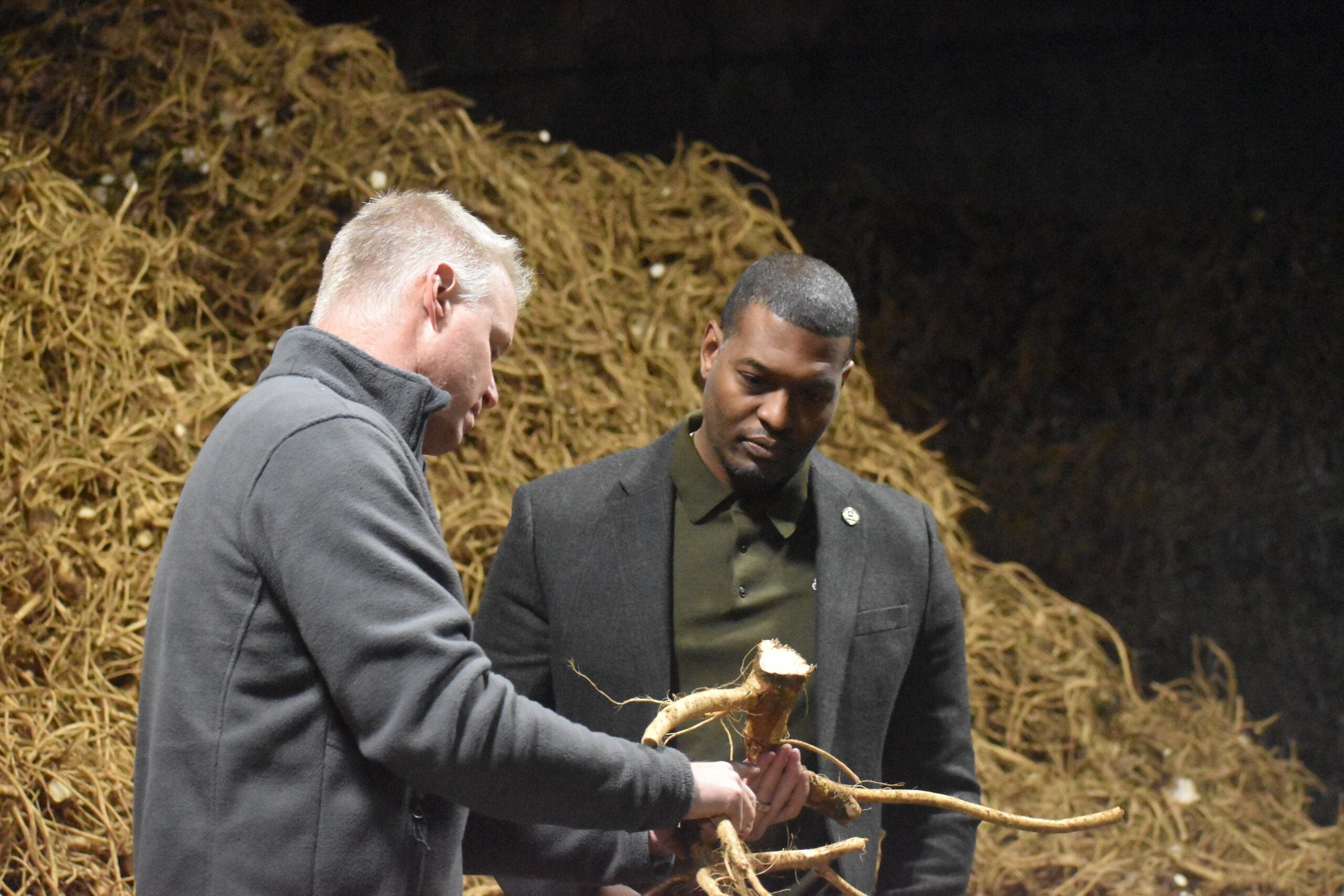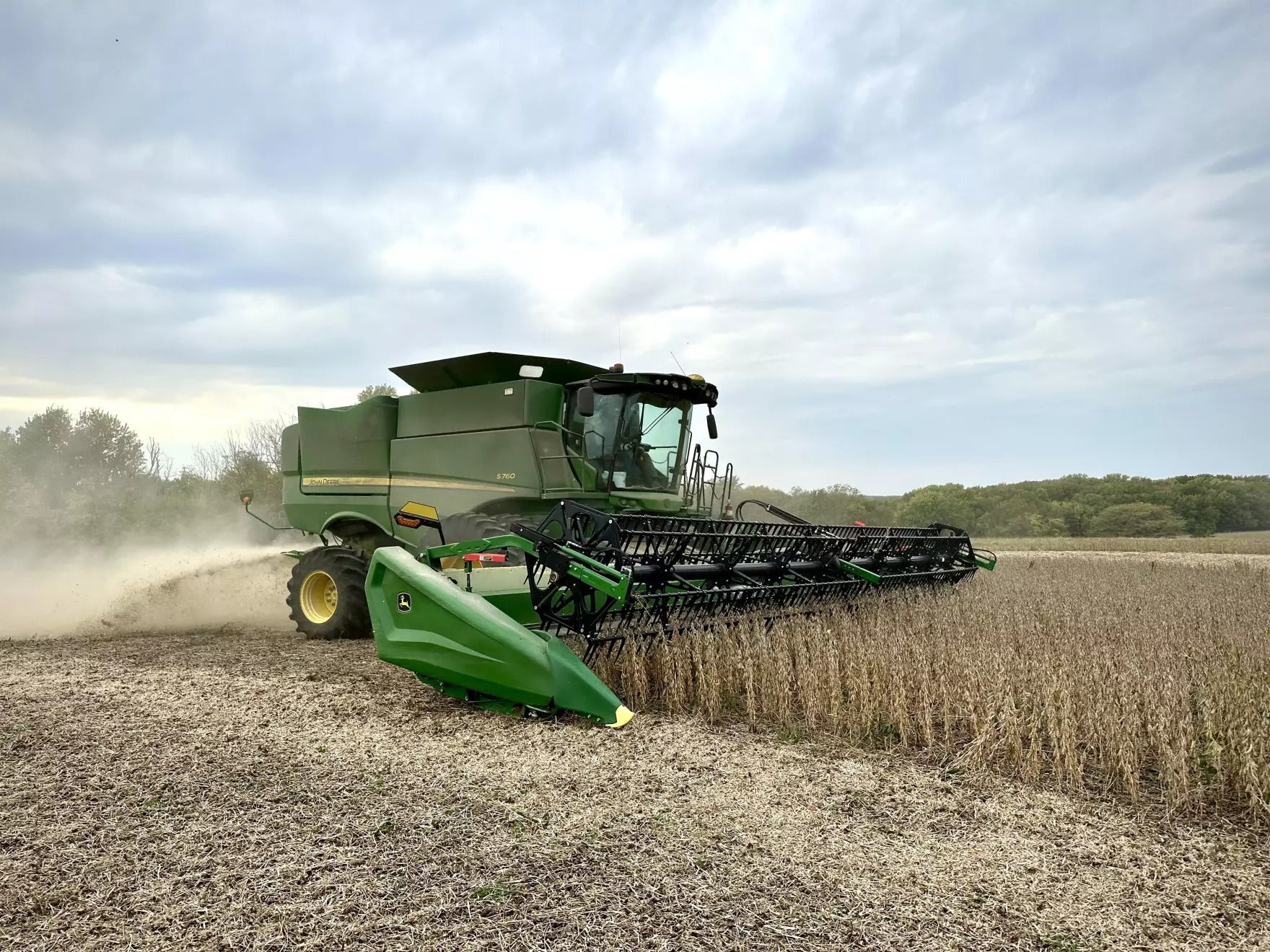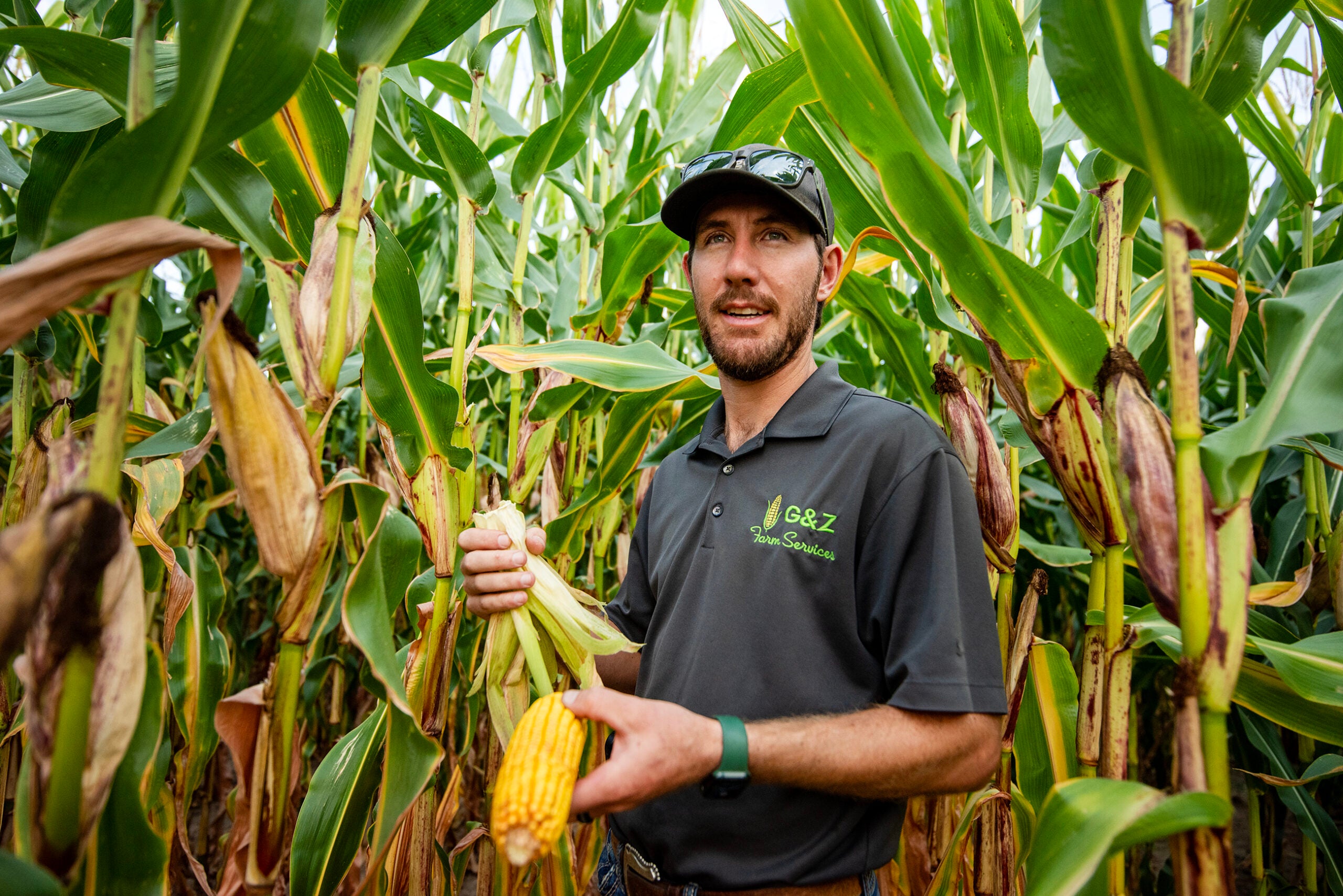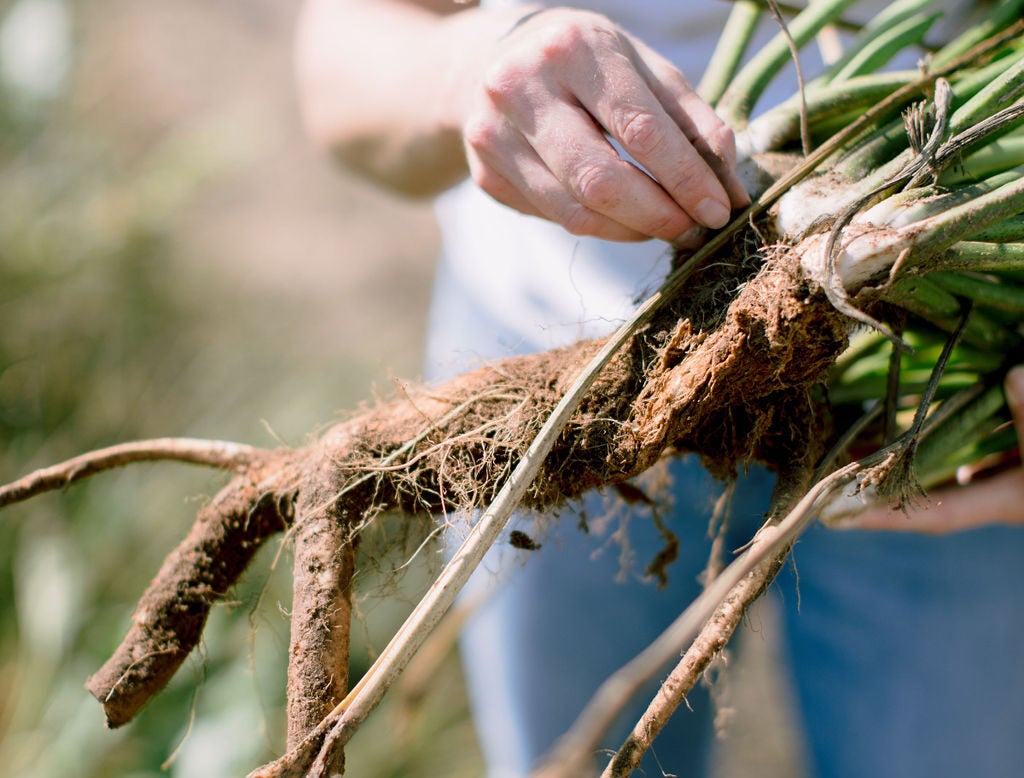The head of the Environmental Protection Agency visited a family-run farm in Eau Claire on Wednesday to promote the Biden administration’s investments in rural America.
Last week, President Joe Biden announced more than $5 billion included in the Bipartisan Infrastructure Law and Inflation Reduction Act will be used to help farms adapt to climate change, upgrade rural infrastructure and expand high-speed internet. The funding includes $1.7 billion to help farms implement sustainable practices that mitigate the effects of climate change.
Members of the president’s Cabinet have been visiting rural areas of multiple states to promote the funding.
News with a little more humanity
WPR’s “Wisconsin Today” newsletter keeps you connected to the state you love without feeling overwhelmed. No paywall. No agenda. No corporate filter.
During his stop in Wisconsin Wednesday, EPA Administrator Michael S. Regan touted Huntsinger Farms as an example of how farms can adopt conservation and sustainability practices and continue to thrive. The family-owned farm is the world’s largest grower and processor of horseradish.
“We also look at a farm like this that’s harnessing the power of renewable energy, clean energy to keep the operations going,” Regan said. “When I talked to the owner of the farm, he stressed that it’s good for the bottom line. But it’s also good to use these clean, green resources because the market is demanding that — the younger consumers and customers are expecting that.”

Huntsinger Farms has been in operation for more than 90 years. Eric Rygg, president of Huntsinger Farms and Silver Spring Foods, is a fourth generation farmer. The family and their roughly 250 employees grow around 8 million pounds of horseradish each year and process it at their facility.
During a roundtable discussion, Rygg said the farm took a more sustainable approach after his great-grandfather Ellis Huntsinger learned the hard way that you can’t grow horseradishes in the same field year after year.
“The yields kept diminishing. (The crop was) more susceptible to diseases. What’s going on with the soil? So with some technology, with some more knowledge…we moved to a five to seven-year crop rotation for horseradish,” Rygg said.
In order to do that, Rygg said they need more land to support the roughly 1,000 acres of horseradish that they’re farming. The operation now farms about 5,000 acres of land in the area, and the farm rotates the crop with corn, soybeans and alfalfa. The farm also uses rye as a cover crop. Rygg said those practices among others help the farm to use less fertilizer.
Kyle Bachel, the farm manager at Huntsinger Farms, said using rye as a cover crop helps pull nutrients up in the soil.
“As it degrades during the crop year, it will actually provide some nutrients to the crop that we’re growing in the field,” Bachel said.
During a tour of the farm, Rygg also showed Regan the operation’s 272 solar panels that generate about 130,000 kilowatt-hours. That supplies about 20 percent of the farm’s energy consumption.
The farm also has a retention pond to hold water they use for washing horseradishes at their facility. Rygg said the farm uses about 6 million gallons of water each year, and the operation reuses about 99 percent of that water to irrigate crops.
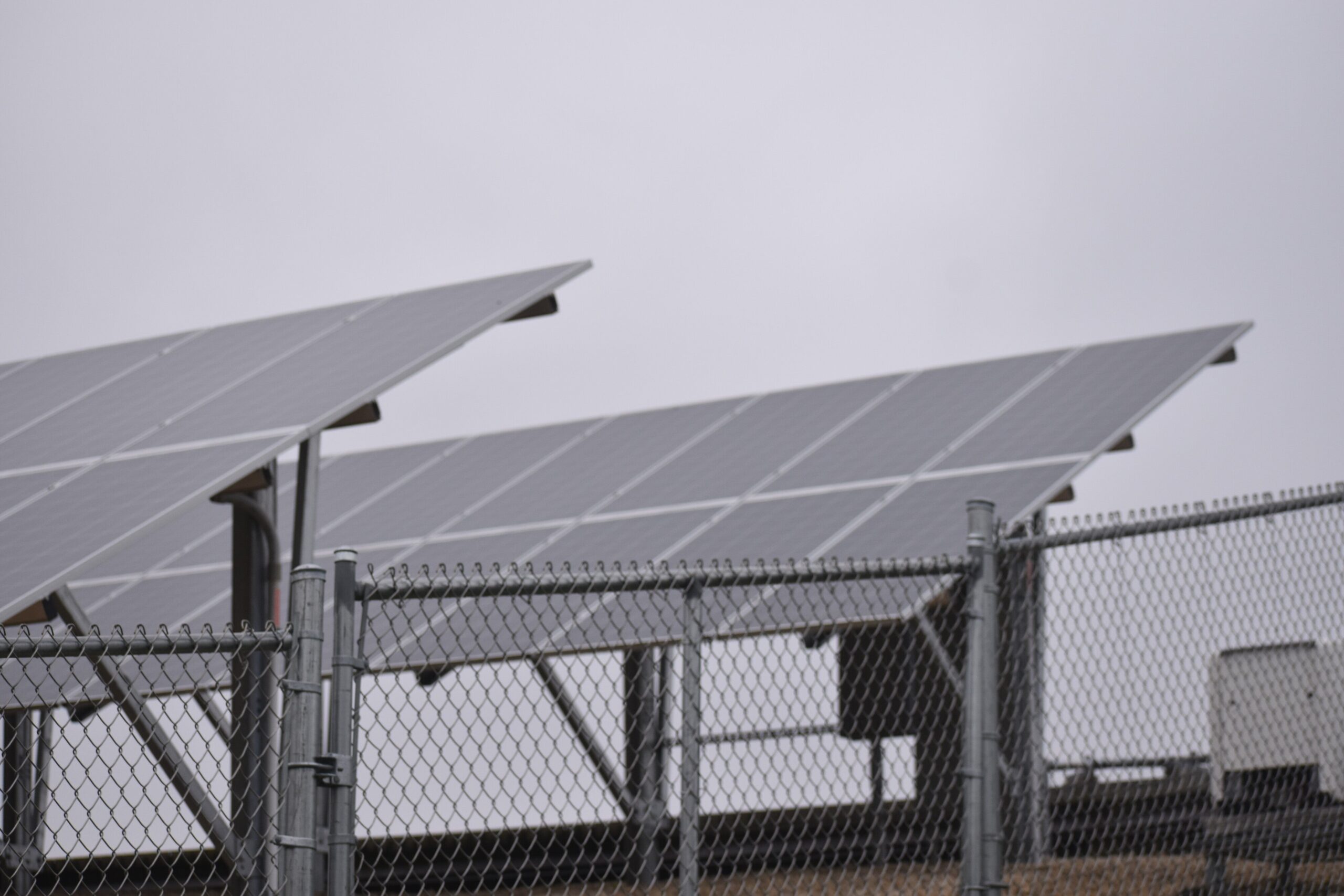
During the roundtable discussion, Regan said the operation shows “what’s good for the economy can be good for the planet.” As billions of dollars flow into rural communities, he said they want to partner with the agriculture community to make sure money is going where it’s needed.
Representatives of farm and conservation groups, as well as researchers and regulators, weighed in with their thoughts. Tara Daun, watershed coordinator with the Wisconsin Farmers Union, highlighted a need for funding and technical assistance.
“We need to have the farmers able to connect with each other and build more of that capacity,” Daun said.
Erin Silva, director of the Center for Integrated Agricultural Systems at the University of Wisconsin-Madison, said part of the solution is diversified cropping systems like those used at Huntsinger Farms. But she said research has shown shifting to more resilient agricultural practices may take five to 10 years to yield benefits for farmers.

“These supports which we’re seeing through some of these federal investments should be in part in the form of financial supports, including cost-share for new equipment and infrastructure, as well as payments for adoption of climate-smart practices,” Silva said.
Heidi Fischer, a dairy farmer who serves on the board of Edge Dairy Farmer Cooperative, highlighted the cooperative’s $50 million project focused on helping dairy farmers use climate-smart practices like cover crops and better manure management.
“A healthy environment and healthy farms are not mutually exclusive, but Edge is working to ensure we have both,” Fischer said. “Through this work, we will continue empowering farmers to create practical, effective solutions to ensure our farming legacies can carry on for generations.”
Wisconsin Public Radio, © Copyright 2026, Board of Regents of the University of Wisconsin System and Wisconsin Educational Communications Board.

